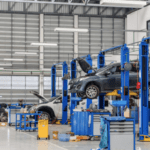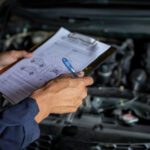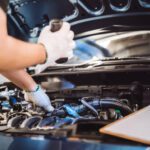Location of the Fuel Filter on a 2007 Toyota Prius
The fuel filter on a 2007 Toyota Prius is located inside the fuel tank. It is part of the fuel pump assembly and is not a serviceable component that can be easily replaced separately. If there are any issues with the fuel filter, it is recommended to replace the entire fuel pump assembly.
Please note that the fuel filter is not a regular maintenance item and does not need to be replaced at specific intervals unless there is a problem with the fuel system. The average cost to replace the fuel filter on a Toyota Prius is between $90 and $207, including parts and labor.
If you have any further questions, feel free to ask!
Contents [show]
Where is the fuel filter located on a Prius?
The fuel filter is positioned in the line leading from the gas tank to the engine and prevents containments from getting inside the engine, which could lead to a loss in performance and potential damage to the cylinder lining.
What symptoms does a bad fuel filter cause?
Here are five of the bad fuel filter symptoms to watch for:
- You have a hard time starting car. If the problem is the fuel filter, and it isn’t changed soon, you may find that your vehicle won’t start at all.
- Misfire or rough idle.
- Vehicle stalling.
- Fuel system component failure.
- Loud noises from the fuel pump.
What are the symptoms of bad fuel filter?
Here are five of the bad fuel filter symptoms to watch for:
- You have a hard time starting car. If the problem is the fuel filter, and it isn’t changed soon, you may find that your vehicle won’t start at all.
- Misfire or rough idle.
- Vehicle stalling.
- Fuel system component failure.
- Loud noises from the fuel pump.
Where is the fuel filter located?
Where is My Fuel Filter Located? The fuel filter will be located either inside the fuel tank or fitted into the fuel line between the tank and the fuel pump. Some fuel tanks have internal, non-serviceable fuel filters.
Does a Toyota Prius have a fuel filter?
If the fuel filter needs changing, you might start seeing certain symptoms: Problems with Starting: Or maybe you Toyota does start, but it takes a few attempts. Stalling: Your definitely don’t want your car to die at the wrong time. Pay special attention if you stall while idling at a red light or stop sign.
What are the symptoms of a clogged fuel filter?
There are several signs that your may have a clogged fuel filter:
- Stalling.
- Loss of power at highway speeds.
- Shaky idling.
- Lowered Fuel Economy.
- Engine Misfires.
- Stalling.
- Hesitation during acceleration.
When should I replace my Prius fuel filter?
What Happens When Fuel Filters aren’t Replaced. It is recommended that you replace your fuel filter every two years or 30,000 miles. If you push it for longer, it can lead to many problems. It may be that your car has difficulty starting or it won’t start at all because enough fuel isn’t making its way to the engine.
How much does it cost to replace a fuel filter on a Prius?
between $242 and $267
The average cost for a Toyota Prius Fuel Filter Replacement is between $242 and $267. Labor costs are estimated between $97 and $122 while parts are typically priced around $145. This range does not include taxes and fees, and does not factor in your unique location.
Can you tell if a fuel filter is bad?
Usually leads to misfires. So you might get this code as well now you can read these codes by going to the parts store near you and they’ll most likely do it for free or you can buy the scanner that i
What is the symptoms of a bad fuel filter?
Common Problems Associated with Bad Fuel Filter(s)
- Your Vehicle Won’t Start. Now there are many reasons that your vehicle may not start, so this is pretty broad.
- Your Vehicle Stalls.
- Misfire or Rough Idling.
- Poor Fuel Mileage.
- Trouble Accelerating.




